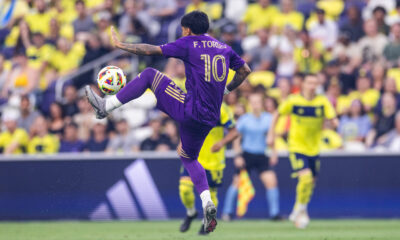Orlando City
Orlando City vs. Atlanta United: Player Grades and Man of the Match

Well, the best thing I can say to open this is at least it wasn’t any worse. When the starting lineup came out, I definitely thought the Lions were going to get blown off the pitch by Atlanta. Thankfully, the Five Stripes aren’t exactly playing the best football in Major League Soccer right now. It’s going to be a challenge to grade the guys after this latest lackluster, at best, performance, but I’m going to give it my best shot.
Starters
GK, Brian Rowe, 5.5 — I’ll preface this by saying that Rowe would have been my Man of the Match had it not been for that poor effort on Julian Gressel’s 51st minute shot that was luckily called back for an offside decision after video review. He came off his line decisively and smartly when it was the correct decision, such as when Josef Martinez had a free shot at goal in minute 49 and on the dangerous cross in the 64th that saw him stay down for a few seconds after the play. Rowe’s save on the Leandro Gonzalez Pirez header in the 26th minute certainly kept Orlando City in the match. His 58% passing accuracy on his distribution neither hurt nor helped the Lions.
D, Kamal Miller, 4.5 — I fully believe that Miller has a lot of potential and way more upside than negative aspects to his play. However, he let Pity Martinez have all the space he needed to make his first MLS goal, and what turned out to be the winning one for Atlanta, in the 15th minute. Miller couldn’t keep up with Pity again in the 44th and allowed him the opportunity to get a headed shot at goal off. The rookie defender did have an excellent interception, one of his three on the afternoon, in extra time to make sure Atlanta didn’t get a second goal at the death. Two tackles, two clearances, and a blocked shot rounded out Miller’s day.
D, Alex De John, 3.5 — It was clear that De John hasn’t seen the pitch for a while, as he’s been out with an injury and definitely needed to shake off some rust. Certainly, it didn’t help that he was expected to cover Hector Villalba, arguably the most underrated player on Atlanta’s squad full of highly rated players. He misjudged a jump on a pass out from the back in the 15th minute that ultimately led to Atlanta’s lone goal. De John made a great run into the box in first half stoppage time and cut a pass back to Will Johnson that ended up as a shot on goal for Orlando City. The first 10 minutes of the second half saw De John get burned by both Josef Martinez and Villalba down the left several times. He managed an interception and three clearances before being subbed off in the 58th minute.
D, Robin Jansson, 4.5 — This may have been Jansson’s worst, or perhaps least impacting, performance as a Lion thus far. He didn’t shut down Villalba in minute 15, affording him the time and space to play a perfectly weighted pass to Pity that of course went in the net. Jansson was mostly quiet for the rest of the match after that, until the 81st minute when he again allowed an Atlanta player to have too much space. This time, Josef Martinez missed the net with his subsequent shot. The Swedish center back finished with two clearances, one interception, and a blocked shot, along with a 90th minute yellow card.
WB, Joao Moutinho, 5 — On the other hand, this match was one of Moutinho’s better performances as a Lion. He did make one major mistake by allowing Gressel to get by him and get off the 51st minute shot that would have made it 2-0 had it not been for VAR. As Orlando City pushed for an equalizer over the last 15 minutes of the match, the best chances came from Moutinho making runs down the left flank and sending crosses into the box. Two of those crosses, one at minute 80 and the other in the 86th, essentially found Ruan who couldn’t capitalize on them. Defensively, the young left wing back only provided one tackle and two interceptions.
MF, Will Johnson, 5.5 — I’m personally indifferent about Johnson most of the time. I get why a lot of fans don’t care for him, yet I also get why the Orlando City coaching staff give him consistent minutes. He demonstrated both sides of the debate in this match. While he does hustle and play with heart, Johnson is often not skilled enough for his play to match his passion. That results in a lot of bad passes — his 84% passing accuracy was the second worst for the Orlando City midfielders — and some glaring errors, like the horrid back headed pass in the 23rd minute that both he and Rowe were happy to see go just wide of the net. Contrarily, Johnson’s hustle saw him end up in the right place at the right time to receive De John’s bouncing pass in first half stoppage time that he was then able to get on frame, forcing Atlanta goalkeeper Brad Guzan into a save.
MF, Cristian Higuita, 5 — Another player that hadn’t seen the pitch in a while and needed to get some rust out of his system was Higuita. A fan favorite, and the only remaining Lion from the 2015 inaugural MLS season, the midfielder was slotted into more of a No. 10 role than his typical defensive mid position. The switch worked out well for the most part, since it allowed Higuita to be a constant nuisance for Atlanta’s back line. Often times throughout the match, he was the only player enforcing the high press and it caused noticeable problems as early as the first minute. Higuita had a great takeaway at the top of Atlanta’s 18 in the eighth minute that may have helped prevent an even earlier goal. Mistakenly known as a player who fouls too much, he instead drew a yellow card foul from Michael Parkhurst in the 65th minute before coming off at minute 78 following a shot he sent over the crossbar.
MF, Sebas Mendez, 5.5 — I don’t necessarily believe that Mendez did anything worthy of Man of the Match, but he was the most solid midfielder on the day. He started off shaky, not defending Villalba well at all in the sixth minute, which led to a shot and then an early corner for Atlanta. Mendez was also badly beaten by Josef Martinez in the 25th, though his recovery save on the shot Josef got off was likely the best Orlando City defensive play of the match. A 94% passing accuracy on a team-leading 63 passes also led the Lions. Plus, I have to give Mendez a special shout out for the beautiful hard tackle he had on former Orlando City player Justin Meram immediately after Meram made his Atlanta debut in stoppage time.
WB, Ruan, 6 (MotM) — I still contend that Ruan needs a rest, and I’m betting that he may finally get it during this stretch of three matches in eight days, so I don’t see how anyone else can honestly compete for Man of the Match when he still puts in a great performance. The right wing back combined with Higuita often to push a high press in the first half leading to a couple of takeaways and one interception. Ruan’s excellent run into the box in the 33rd minute created Orlando City’s best chance of the game considering he put a perfect cross on Dwyer’s foot that the striker, not surprisingly, fluffed. The one dangerous defensive error Ruan made came on Gressel’s 51st-minute shot as he gave Villalba too much space to cut the ball back to Gressel. He got on the end of two of Moutinho’s crosses as the game wound down and sent in a low cross of his own that rolled just behind Akindele in the 83rd minute.
F, Dom Dwyer, 2.5 — I’m going to keep this as short as I can because quite frankly, I don’t want to even waste your time reading about Dwyer’s pathetic play this match. He sent a first minute shot a mile high and left of the target and then proceeded to flop any time a defender breathed in his general direction. See minutes 27, 29, and 38 for evidence. I’m sure a few might argue about the refereeing — I will not be one of those people as we all know PRO is going to PRO and the 11 players on the pitch have to control everything they can. Flopping and looking for a call on nearly all of your significant touches isn’t controlling what you can. Dwyer missed yet another sitter in the 33rd minute when he shot right at Guzan. Money is tight for Orlando City, meaning bringing in a high-quality striker isn’t an option right now. I’d rather see the rookie strikers, Santiago Patino and Benji Michel, get valuable minutes and start to grow than have to see Dom Dwyer disrespect the Lions’ crest by angrily ripping off his kit when his terrible play gets him subbed out of a match in the 64th minute.
F, Tesho Akindele, 4.5 — Akindele was mostly invisible for the first half on this match. I know that’s been said about his play a few times this season and the more it happens, the more I’m starting to worry. The thing is, when he makes his presence known, Akindele can be quite an asset to Orlando City. He made a good run in the 44th minute and tried to find Dwyer with a pass that had a little bit too much on it. The Canadian international’s defensive effort led to a nice interception in minute 75 after a giveaway from the Lions. He sent a shot right to Guzan in the 80th minute after some nice play from substitute Josue Colman. An 83% passing accuracy with one key pass summed up his afternoon.
Substitutes
D, Kyle Smith (58’), 4 — I would put Smith in the Akindele invisible category for his time in the match. According to the FOX sideline reporter, O’Connor believed Smith to be more “steady” on the ball than De John. Seems like a nice way of saying De John was probably going to cost the Lions another goal if he didn’t get subbed off. The most notable play for Smith came in the 62nd minute when he was far too slow shutting down Pity Martinez.
F, Chris Mueller (64’), 6 — As far as I’m concerned, this match was a shining example of why Cash should continue to play as Orlando City’s super sub. His energy off the bench was palpable and caused a very obvious momentum shift in favor of the Lions. Mueller’s entrance also meant the squad switched to more of a 4-2-3-1 formation. He took two free kicks, one straight at Guzan, and pressured Guzan to make a bad pass out of the back that Mueller then took too many touches on. In the third minute of stoppage, he appeared to be tripped by Jeff Larentowicz though no foul was called.
M, Josué Colmán (78’), 4.5 — Ah, the ever-elusive Young Designated Player, Josué Colmán. He wasn’t in the match long, but he did manage to set up a chance for Akindele in the 80th minute. Colmán did the Colmán thing in the 90th, however, when he attempted to dribble into two defenders and lost possession.
There you have it. How did you see it? Who was your Man of the Match? Make sure to vote in the poll below.
Polling Closed
| Player | Votes |
| Ruan | 22 |
| Will Johnson | 13 |
| Sebas Mendez | 4 |
| Chris Mueller | 17 |
| Other (Answer in the comments below). | 10 |
Orlando City
Examining the Sustainability of Ramiro Enrique’s Scoring Explosion
Is Ramiro Enrique’s scoring outburst sustainable, or is a regression to the mean on the horizon?
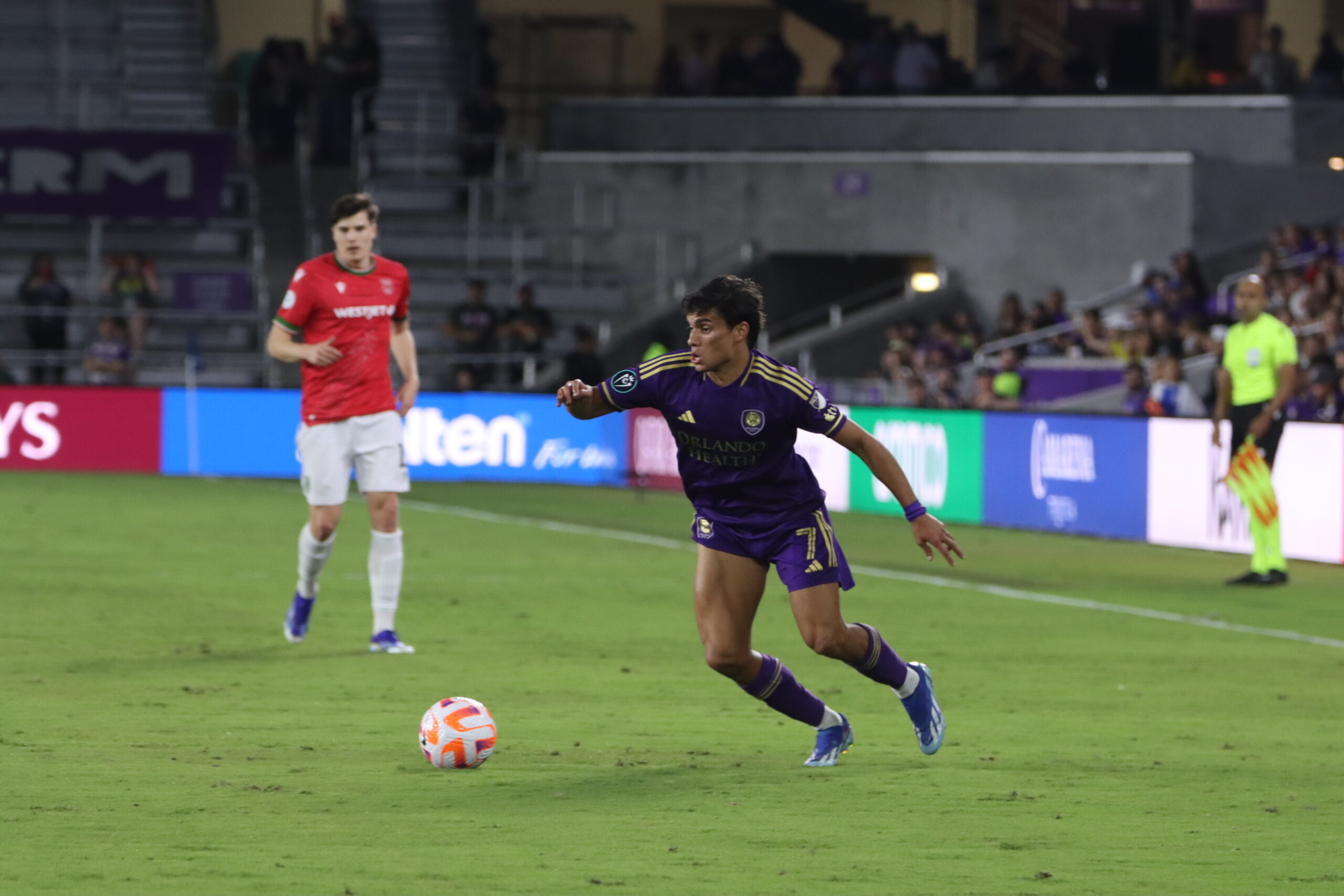
Since Orlando City’s 5-0 thumping of D.C. United back on July 6, Ramiro Enrique has tapped into a red-hot vein of form. He’s got four goals in four games, matching his scoring output from the entirety of the 2023 season, and doing so in four matches and 245 minutes, as compared to 30 matches and 1,019 minutes last year. That brings us to the big question: is this sort of output sustainable?
We’ll start by looking at the expected goals on each of his four tallies. While xG isn’t a perfect statistic, it provides a fairly good measure of how good a chance is. To get a clearer picture, we’ll also take a look at each goal to help gauge how difficult the chance is.
Against D.C. United, Enrique latched onto a flicked-on header from a corner kick and used a header of his own to score the Lions’ fifth and final goal of the night. That strike had an xG of 0.1. In truth, that number seems a bit low to me, as once Enrique’s in front of his defender, he has the whole net to aim at, and the ball comes in at a great height for him to get his head on it. He makes no mistake and sticks it into the side netting, where the goalkeeper has no hope of reaching it.
Against the New England Revolution, the Argentine again scored from a corner, sneaking in front of goalkeeper Aljaz Ivacic and flicking the ball past him before he could collect Cesar Araujo’s header. His second goal of the season had an xG of 0.4. That number seems more reasonable to me. Once he does the hard work of losing his marker and getting across Ivacic, the goalkeeper is helpless to stop any ball that isn’t coming straight at him, and it’s a good finish.
Against Nashville, he collected a pass from Ivan Angulo a few yards outside of the six-yard box and blasted it off the crossbar and in. The tight angle from which he scored means the xG of 0.04 isn’t too surprising. Once again, Enrique managed to lose his defender and got himself into a really nice area of open space. The finish is outstanding, but it wouldn’t have been surprising to see a save or shot off target from this angle.
His fourth goal of the year had elements of skill and luck, as he redirected Martin Ojeda’s shot against NYCFC. The effort from Ojeda took a deflection off Enrique that caught the goalkeeper leaning the wrong way and had enough pace to carry it into the net, for an xG of 0.11. Again, I’m surprised the number is as high as it is. That’s probably due to the deflection happening in the box and leaving Matt Freese next to no time to react. While it was a clever touch to redirect it, there was also a good deal of luck involved.
Those totals add up to 0.65. In other words, Enrique would be estimated to score 0.65 goals off those chances (or one, rounding up, as there are no fractions of goals), and he instead bagged four. There are a couple ways you can view that. The optimist would say that he’s simply a good finisher and has been making the most of the chances that have come his way, even when they aren’t very good ones. The pessimist would say that him converting low percentage chances at this rate isn’t sustainable, and he’s due to regress back to the mean soon.
We can also look at the bigger picture of his statistics up to this point in the year. Across 11 games and 483 minutes, Enrique has taken 18 shots, put nine of them on target, and scored from four of those. He’s also got a season xG of 3.52, which is pretty much in line with his goal total of four, although he’s slightly outperforming it. That isn’t a bad thing though, as the best strikers score difficult chances too, not just the easy ones. Cristian Arango, Christian Benteke, and Denis Bouanga are the top three scorers in the league, and Bouanga is the only one not outperforming his xG (17.68 xG compared to 16 goals).
In my opinion, the truth of Enrique’s case lies somewhere in between. He’s put 50% of his shots on target this year, which is a great number, and getting the ball on frame is half the battle in this sport, so that’s an encouraging place to start. Each of his first three goals in 2024 came as a result of getting into space in a dangerous area and making no mistake with his finish once the ball arrived. Against D.C., he did well to get in front of his defender. In New England, he snuck in from the blind side of the defense. And against Nashville, he found space in the box and stayed onside until Angulo was able to find him. That sort of movement and ability to get yourself into dangerous areas is something that can be replicated, even if finishing low-percentage chances like the strikes against Nashville and NYCFC probably isn’t.
If Enrique continues being clever with his movement and finding dangerous spaces, Orlando’s offense has begun to look fluid enough that his teammates will find ways to get him the ball. As long as he keeps getting shots on frame and his finishing stays sharp, it isn’t unreasonable to assume that he’ll grab some more goals this year. It probably won’t be at the rate he’s done so in July, but if nothing else, he should be able to provide some extra firepower to an OCSC attack that has woken up in recent weeks. Keep your fingers crossed, folks. Vamos Orlando!
Lion Links
Lion Links: 7/26/24
Orlando City plays CF Montreal tonight, USWNT wins against Zambia, Marta provides assist in Brazil’s win, and more.
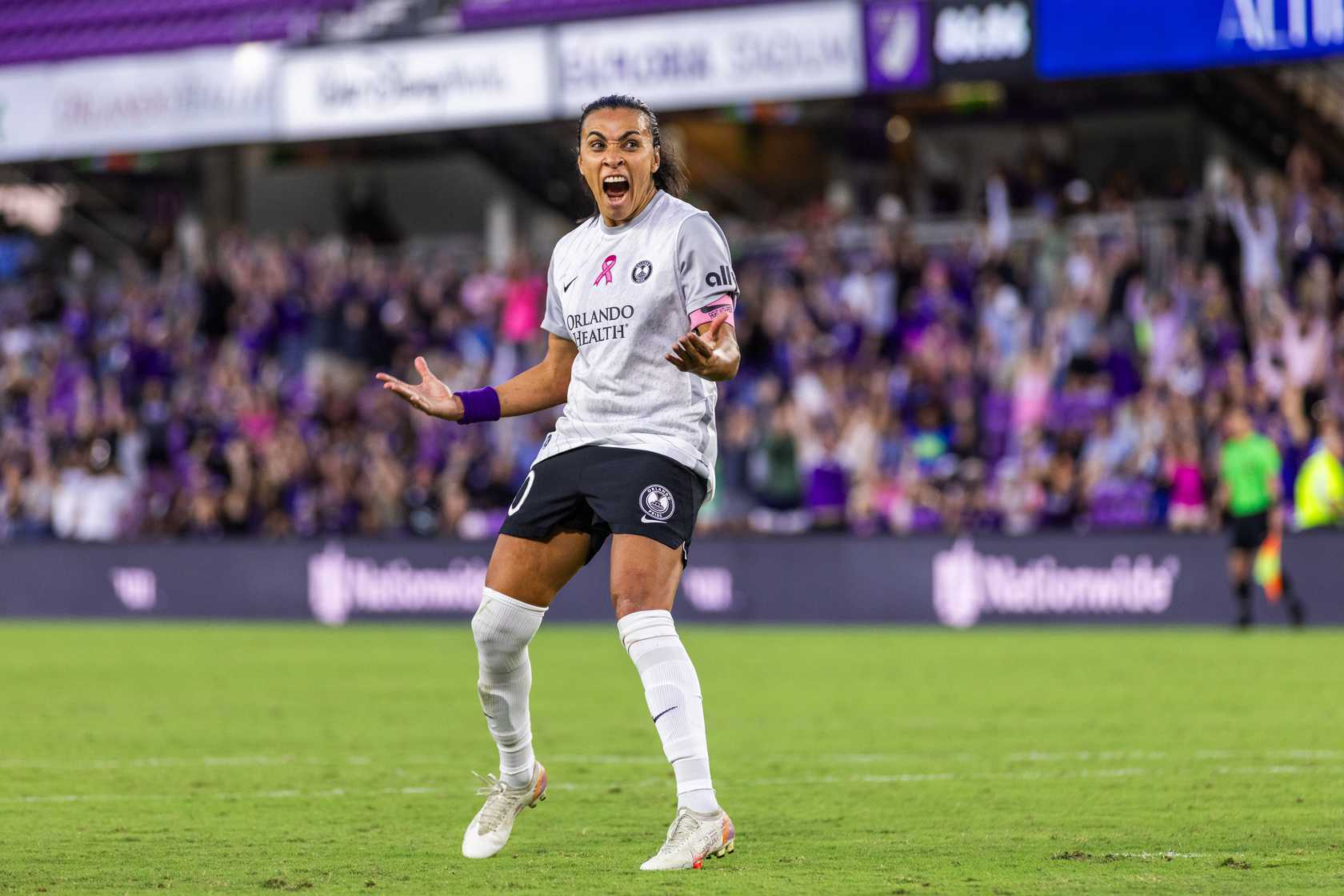
Happy Friday! I hope the work week has gone easy on you as we get ready for a weekend filled to the brim with soccer to enjoy. The Olympic opening ceremony is also today, and I’m interested to see what the organizers in Paris have come up with. But for now, let’s get this Friday started with today’s links!
Orlando City Takes On CF Montreal Tonight
The Leagues Cup kicks off today and Orlando City will host CF Montreal tonight in its first of two group games. The Lions will then take on Atletico de San Luis on Aug. 4. It’s worth noting that these games will go into a penalty shootout if the score remains level after 90 minutes, with the winner of the shootout getting an extra point. The top two teams of each group advance to the next round and Orlando will play the Philadelphia Union, Cruz Azul, or Charlotte FC if it survives the group stage.
USWNT Beats Zambia in Summer Olympic Opener
The United States Women’s National Team started its Olympic campaign with a dominant 3-0 win against Zambia. The USWNT’s attack looked free and dangerous, with Trinity Rodman striking first and Mallory Swanson scoring twice in quick succession to give the USWNT a comfortable lead. Those goals also came before Zambia was reduced to 10 players after a red card to Pauline Zulu. The Orlando Pride’s Barbra Banda and Grace Chanda both started for Zambia, although Chanda was subbed out in the first half when Zambia had to make changes due to the red card.
There is some bad news along with the good for the USWNT though. Jaedyn Shaw missed out on playing in the opener due to a leg injury, and Sophia Smith had to exit in the 42nd minute.
Marta Assists in Brazil’s Olympic Win
The USWNT was far from the only team to win its first game of this year’s Olympics, as there were no draws after the first round of games. Pride star Marta provided the assist on Brazil’s only goal in a 1-0 win over Nigeria. Marta did well to pick out Gabi Nunes from a tough angle, and the striker had a great first touch and strike to put it away. Pride defender Rafaelle helped secure the shutout, with Brazilian goalkeeper Lorena coming up with huge saves as well. Elsewhere in Group C, Spain’s Aitana Bonmati had a goal and an assist in her team’s 2-1 win against Japan.
New Zealand struck first against Canada in Group A, but the Canadians rallied to come back and win 2-1. France scored three goals in the first half and survived a rally from Colombia in the second half to win 3-2. Germany may have had the most impressive win so far, beating a talented Australian side 3-0.
Analyzing New Zealand Ahead of Olympic Clash
The United States Men’s Olympic Soccer Team will aim to bounce back from a loss to France when it faces New Zealand on Saturday. New Zealand beat Guinea in its first game and is coached by Darren Bazeley, who led New Zealand to the knockout stage of the 2023 U-20 World Cup. Minnesota United center back Michael Boxall and Viking FK midfielder Joe Bell are two of New Zealand’s overage players and give the team some stability. Goalkeeper Alex Paulsen, who joined Bournemouth this summer, is capable of coming up with acrobatic saves to give the U.S. fits as well. As for New Zealand’s attack, midfielder Sarpreet Singh and striker Ben Waine are a couple of the dynamic players the U.S. will have to keep in check.
Bev Priestman Removed From Canadian Olympic Team
Canada will have to go the rest of the Olympics without Head Coach Bev Priestman, who was removed from the team by the Canadian Olympic Committee. This decision comes amid a scandal involving spying on New Zealand’s training, which led to Canada Soccer suspending Priestman for the rest of the tournament. Reports have also surfaced that Canada’s men’s and women’s teams have tried to spy on opponents for years, including during the women’s team’s winning campaign in the 2021 Olympics. Only time will tell if Priestman will coach the team after this tournament and if punishments for the team’s actions will be handed out.
Free Kicks
- Orlando City’s Kaleb Harrington received the Spirit of Fair Play Award for his role in the Special Olympics Unified Sports All-Star Game. The East All-Stars were victorious as well, winning 5-0 against the West All-Stars.
- Chicago Red Stars defender Sam Staab was placed on the season-ending injury list after suffering a torn Achilles in the team’s Summer Cup match against NJ/NY Gotham FC.
- FC Cincinnati has signed Chidozie Awaziem from Boavista in Portugal’s top flight to help fill the club’s need at center back due to injuries to Matt Miazga and Nick Hagglund.
- Paraguayan center back David Martínez joined Inter Miami on loan from River Plate. The loan lasts through July of next year and also includes a purchase option.
- San Diego FC signed center back Patrick McNair as its fifth player before taking the field next year. McNair will spend the rest of 2024 on loan with West Brom.
- Minnesota United signed midfielder Joseph Rosales to a new contract that will keep him in Minnesota through 2027, with an option for 2028 as well. The 23-year-old is having a breakout year of sorts for the Loons, recording 10 assists in 21 appearances.
- Paris Saint-Germain is reportedly willing to pay Spanish winger Nico Williams double what Barcelona would pay the 22-year-old in order to sign him.
That’s all I have for you today. I hope you all have a fantastic Friday and rest of your weekend. Enjoy the Olympics!
Orlando City
Orlando City’s 2024 Offensive Blueprint (So Far)
An evaluation of how Orlando City has been trying to score goals in 2024.
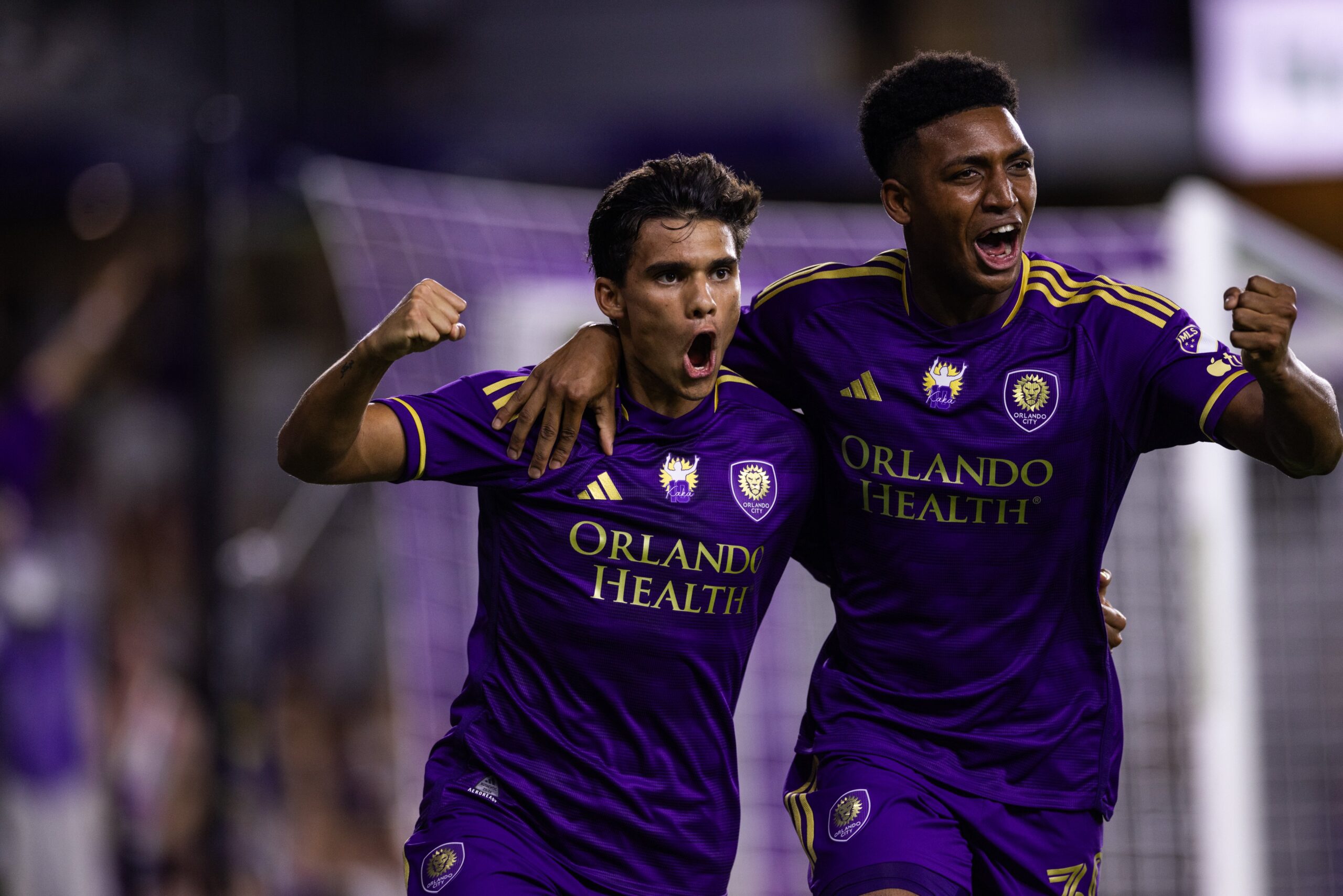
Jay-Z released one of my all-time favorite albums, The Blueprint, in 2001. With apologies to him, and his track on that album called “Girls, Girls, Girls,” what we as fans want are goals, goals, goals, and we want our team to score as many of them as possible. In this article I will explore Orlando City’s attacking style — some might say their attacking…blueprint — thus far this season and evaluate how the Lions have been trying create those goals we do adore.
All right, now that we have pushed the limit on puns and wordplay about that album, let’s look at some numbers related to Orlando City’s offense. First, let’s start with the direction of play, because Orlando City has a very clear plan of attack in 2024, and it involves the left side. According to the tracking from whoscored.com, Orlando City attacks down the left side on nearly half of its possessions.
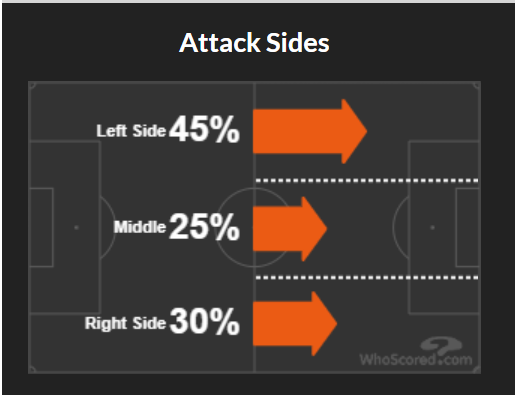
No team in MLS favors one side of the field as frequently as Orlando City’s 45% on the left side, and it is interesting that it is so high down the left because Facundo Torres, generally regarded as the squad’s most creative and dangerous player, plays most frequently on the right side of the field. I think there are three primary reasons for the left side favoritism:
- Iván Angulo is one of the fastest players in MLS and spends most of his time on the left side of the field, so the team tries to get him into space so he can use that speed to get the defense on its heels.
- Orlando City has three left-footed players who love a cross so much I am surprised they play for Orlando City and not Vatican City. Rafael Santos averages 5.1 crosses per 90 mins (27th in MLS), Nico Lodeiro averages 5.6 (16th), and Martín Ojeda averages 9.61 (second). Ojeda has been playing more centrally recently, but he still drifts to the left frequently. Lodeiro does the same, and Santos nearly exclusively stays on the left side. All three of them are crossing machines.
- Torres loves to cut back into the middle from his normal slot on the right side of the field, and so crossing it from left to right gives him space to operate, as the defense has to recover on a switch of field, and a scrambling defense against a talented attacking player is advantageous for Orlando City. Torres is fifth in MLS in receiving passes from 10+ yards away in the offensive area of the field, and his per-90-minute average for those receptions has increased from 2022 (8.4) to 2023 (9.8) to 2024 (11.4). Additionally, here is Facu’s shot chart for the year, courtesy of fotmob.com, and you can see that of his seven non-penalty-kick goals, all of them come from the right half of the field (his most recent goal against New England is highlighted with the red circle, because after a few minutes I gave up on trying to figure out how to show this without having one highlighted):
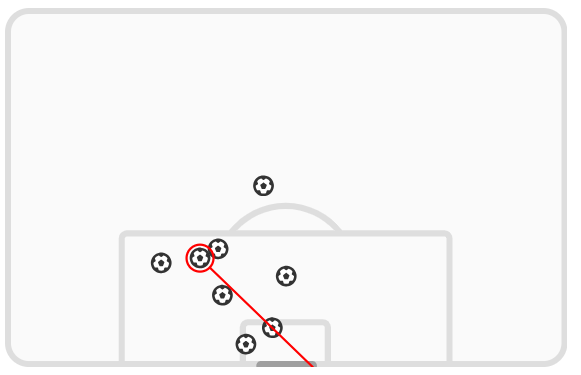
Expanding a little bit off of the direction of play, but returning to the second item in the list above, Orlando City leads all of MLS with an average of 21.32 crosses per 90 minutes. The other 28 MLS teams average 16.6 crosses per 90 minutes, so Orlando City is crossing the ball 28% more frequently than the average MLS team. The Lions have a physical presence in Duncan McGuire in the middle, so this makes sense to target him with crosses into the 18, and in fact the team is fourth in MLS this season with an average of 2.4 completed crosses into the penalty areas per 90 minutes.
It is not just Duncan though, of the 36 goals Orlando City players have scored this season (the other three are own goals), nine of them have come on a header and by eight different players. That 25% of goals scored on a header is the highest percentage for any Orlando City team in fbref.com’s tracking (goes back to 2018) and ranks the team only behind Austin FC’s 29% in MLS this season.
All crosses do not necessarily end in headers, but nearly all headers come from crosses, and the irony of the fact that Orlando City is scoring a high percentage of its goals from headers is that the Lions rank, to use a technical term, DFL in the league in percentage of aerial balls won (40.1%, and the next lowest is 45.4%). It’s kind of like the tagline to those Most Interesting Man in the World beer commercials from Dos Equis — the Lions don’t often win aerial balls, but when they do, they score goals.
Flipping from balls in the air to balls that are generally played on the ground, according to the data tracked by Opta on fbref.com, Orlando City is seventh in MLS in completed through balls per 90 minutes with an average of 1.5. The Lions have been in the top third of MLS in four of the last five seasons in this statistic, as this is clearly a staple of an Óscar Pareja-coached squad.
If you look at the individual MLS players who are leading the league in completing these dangerous balls, it is a veritable who’s who of creative players across the league. Say what you will about Luis Muriel, and I wrote a whole article about him a few weeks ago, but his passing ability is excellent, and it did not surprise me at all to see him high on this list and among the other well-known names. Here are the top 15, which also includes Lodeiro, among players who have played at least 500 minutes:
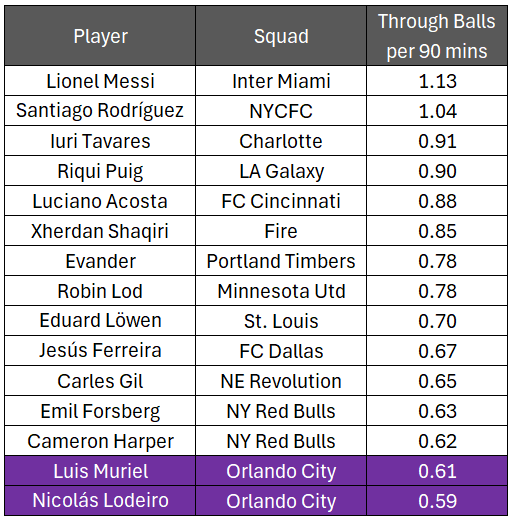
I touched on the left side focus earlier and how Angulo’s speed plays a large role in why the team plays more frequently down the left side, and that comes into play here as well with Orlando City’s predilection for playing through balls. It is also now time for Dagur Dan Thórhallsson to enter the chat, because he is just as much of a through ball target as Ruan was for several years in making speed runs up the right side of the field, and he ranks 24th among defenders in goal-creating actions per 90 minutes (0.24). Coincidentally, he also ranks 24th in shot-creating actions per 90 minutes (2.0). McGuire is also a target for these through balls as he makes excellent shallow runs behind defenders to then run onto balls played in front of him, and Ramiro Enrique is also pacey enough to do the same.
The completed crosses and through balls, as well as the fact that Orlando City is in the top 10 in total completed passes per 90 minutes, contribute to the team leading MLS with 10.1 completed passes into the penalty area per 90 minutes. The rest of MLS averages only 8.4, so Orlando City’s offensive tactics puts the team 20% higher than the rest of the league in terms of its frequency of completing passes to teammates inside the box.
Now, what teams want are goals, not completed passes into the penalty area, but you can see what the Lions are trying to do offensively by looking what these numbers reveal about how they are directing their attacking play.
Orlando City has a burner on the left (Angulo) and also several left-footed players who have the ability to whip in a dangerous cross (Ojeda, Lodeiro, Santos), so the focus is more on going down the left than the middle or the right. The Lions do have a fullback (Thórhallsson) with pace on the right too, so he is a target when they go right, and as a former midfielder, he has the ability to create offense coming forward, so he does with great frequency. The best finisher (Torres) is out on the right but loves to cut back to his left, and this year there is a higher focus on getting him the ball in space as opposed to having him leading the buildup.
Three players (Ojeda, Lodeiro, Muriel) are sharing the 10 role and releasing through balls to the outside and inside threats, and McGuire and Enrique are essentially serving as soccer versions of a basketball rim runner, attacking the goalmouth and trying to score in any way possible.
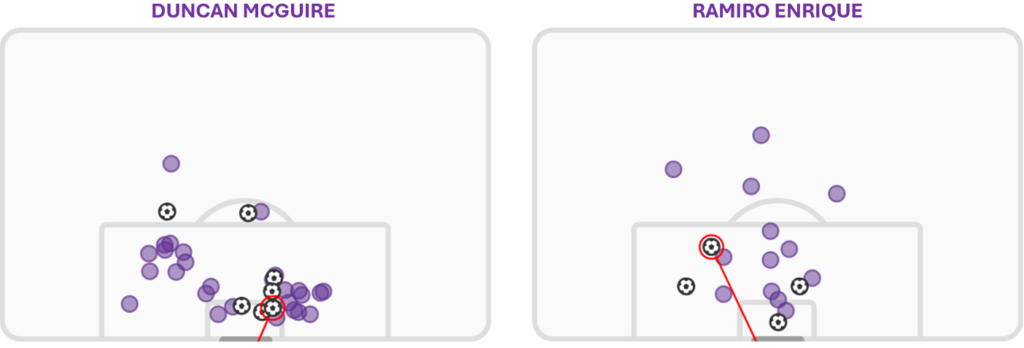
It all sounds great on paper, but for much of the season the offense was sputtering — so much so that Orlando City has scored more goals in the last seven games (20, 2.9 goals per game) than it did in its first 18 games (19, 1.1 goals per game). The first half of the season contained several issues that I believe contributed heavily to the low goal-scoring output, with several injuries, games missed for international duty, and competing in Concacaf Champions Cup at the same time as the start of the regular season, forcing squad rotation and players playing outside of their normal positions.
There was also just some poor play during those early months as well, some self-inflicted poor performances. I believe that Orlando City has found something though in the last few weeks, and while the Lions may not score 2.9 goals per game for the rest of the season, I think that what we have seen recently is a settled team of players who know their roles and understand the strategy, and who have the ability to execute that strategy.
Just 17 years after it was released, Jay-Z’s The Blueprint was selected by the Library of Congress for preservation in the United States National Recording Registry for being “culturally, historically, or aesthetically significant.” Let’s hope that 17 years from now, in 2041, we are all looking back fondly on what became an athletically significant 2024 season for Orlando City.
-
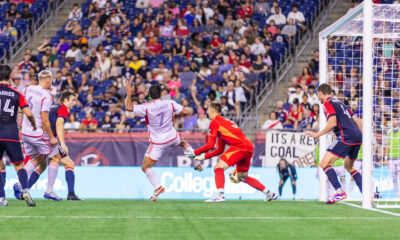
 Orlando City2 weeks ago
Orlando City2 weeks agoOrlando City vs. New England Revolution: Final Score 3-1 as Lions Finally Win at Gillette Stadium
-
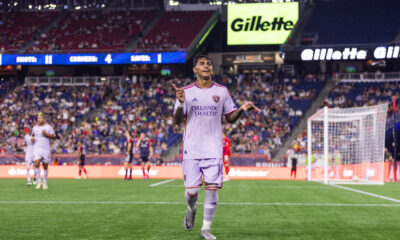
 Orlando City2 weeks ago
Orlando City2 weeks agoOrlando City vs. New England Revolution: Player Grades and Man of the Match
-

 Orlando City2 weeks ago
Orlando City2 weeks agoOrlando City vs. New England Revolution: Five Takeaways
-
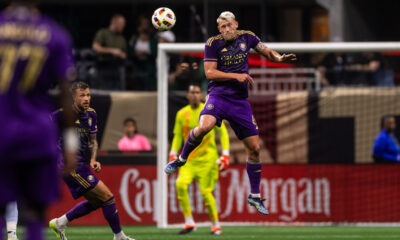
 Orlando City2 weeks ago
Orlando City2 weeks agoHow Should We Make Sense of Orlando City’s Defense in 2024?
-
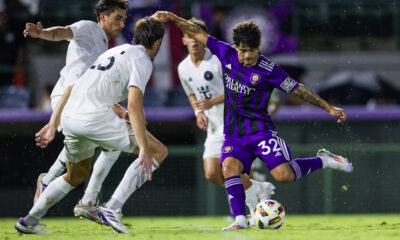
 Orlando City B2 weeks ago
Orlando City B2 weeks agoOrlando City B vs. Inter Miami II: Final Score 1-1 as OCB Draws Rivals and Claims a Second Point in Penalties
-
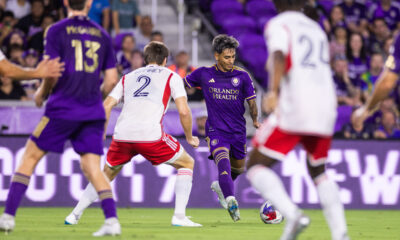
 Orlando City2 weeks ago
Orlando City2 weeks agoIntelligence Report: Orlando City vs. New England Revolution
-
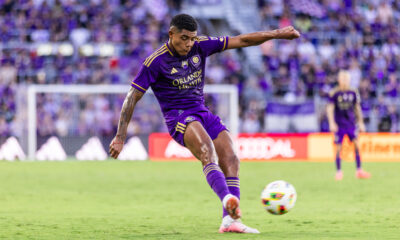
 Podcasts2 weeks ago
Podcasts2 weeks agoPawedCast Episode 432: New England Preview, OCB Set to Host Inter Miami II, and More
-

 Orlando City2 weeks ago
Orlando City2 weeks agoOrlando City at New England Revolution: Three Keys to Victory




